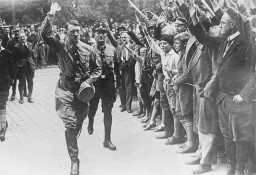You searched for: 圣文森特和格林纳丁斯做广告【TG飞机:@bapingseo】INS,FACEBOOK全世界竞价开户【TG电报:@bapingseo】谷歌收录了多少个网站【Telegram:@bapingseo】哪里有多宝体育官网app下载微信可提现的水果机APP意甲买球网站足球手机直播联盟的?7sVwPr/579002.html
<< Previous | Displaying results 201-225 of 268 for "圣文森特和格林纳丁斯做广告【TG飞机:@bapingseo】INS,FACEBOOK全世界竞价开户【TG电报:@bapingseo】谷歌收录了多少个网站【Telegram:@bapingseo】哪里有多宝体育官网app下载微信可提现的水果机APP意甲买球网站足球手机直播联盟的?7sVwPr/579002.html" | Next >>
-
Leon Kusmirek
ID CardLeon was the oldest of two boys born to a Jewish family in Zgierz, a central Polish town in the heart of Poland's textile producing region. The family lived at 15 Konstantynowska Street. Leon's father worked at a textile factory. At age 7, Leon began attending public school in the morning and religious school in the afternoon. 1933-39: On Friday, September 1, 1939, Leon's mother had just returned from the market when the family saw German planes. On Sunday they flew over again, lower, panicking the city.…
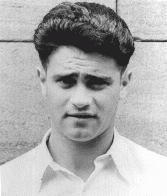
-
Moses Rechnitz
ID CardThe younger of two children, Moses was born to Jewish parents living in the southwestern Polish town of Bedzin. When he was 7, his family moved to the nearby city of Katowice where his father had a wholesale leather business. The Rechnitzes lived in a three-bedroom, upper-floor apartment on Jordana Street. Moses attended a Polish elementary school and also received religious instruction. 1933-39: In secondary school, Moses was one of the only Jewish pupils. He first encountered antisemitism when a teacher…
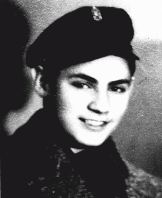
-
Adela Low
ID CardAdela, known as Udl to her family, was one of four children born to a Jewish family in the Polish town of Ulanow. Her father was a landowner and cattle merchant, transporting calves from the Ulanow area for sale in other towns in the region. From the age of 3, Adela attended a private religious school for girls where she learned Jewish history and Hebrew. At age 7 she began public school. 1933-39: Adela came from a charitable family; when her mother baked challah, a special bread for the Jewish Sabbath,…
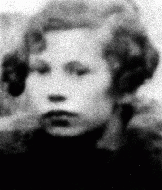
-
Herschel Low
ID CardHerschel was the oldest of four children born to a Jewish family in the Polish town of Ulanow. His father was a landowner and cattle merchant who transported calves from the Ulanow area for sale in other towns. Herschel attended a religious school from the age of 3, and started public school at age 7. 1933-39: Since Herschel was skilled with his hands, his father got him a job weaving reed baskets after he graduated from high school. Herschel was also a member of a Jewish youth organization, Benei Akiva,…
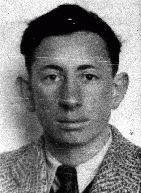
-
Mieczyslaw (Marek) Madejski
ID CardMieczyslaw was the eldest of three sons born to well-to-do Roman Catholic parents in Poland's capital of Warsaw. His father was a real estate developer and his mother was a housewife. Mieczyslaw, or Mieteck as he was nicknamed, began attending public elementary school in 1930 when he was 7 years old. 1933-39: Mieczyslaw's father urged him to study either German or Russian because he thought it was likely that there would be a German or Soviet invasion. Germany invaded Poland on September 1, 1939. During…
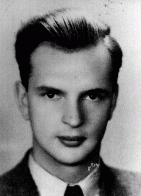
-
Refugees Today
ArticleAs of mid-2022, there were about 27 million refugees. Learn more about these refugees, the violence they face, and the global impact of the refugee crisis.

-
Dismissal letter from the Berlin transit authority
DocumentA letter written by the Berlin transit authority (Berliner Verkehrs Aktiengesellschaft) to Viktor Stern, informing him of his dismissal from his post with their agency as of September 20, 1933. This action was taken to comply with provisions of the Law for the Restoration of the Professional Civil Service. On April 7, the German government issued the Law for the Restoration of the Professional Civil Service (Gesetz zur Wiederherstellung des Berufsbeamtentums), which excluded Jews and political opponents…
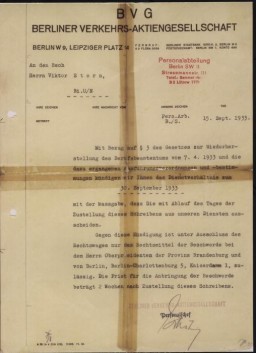
-
Roosevelt announces aid for Britain
FilmAlthough constrained by powerful isolationist sentiment in the United States, President Roosevelt was determined to help democratic Great Britain continue the war against Nazi Germany. Even as he promised to keep the United States neutral in the European war, Roosevelt ordered the expansion of military construction and pledged--as shown in this footage--that the United States would serve as the "great arsenal of democracy." In March 1941, Congress approved Lend-Lease aid for Britain. Britain ultimately…
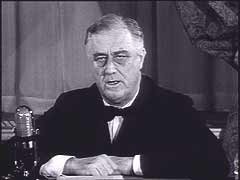
-
Defeat of Nazi Germany, 1942-1945
MapBeginning in 1938, the Nazis increased their territorial control outside of Germany. By 1942, three years into World War II, Nazi Germany reached the peak of its expansion. At the height of its power, Germany had incorporated, seized, or occupied most of the continent. However, also in 1942, the Allied Powers started to systematically bomb Germany. They would continue to do so until Germany's surrender in 1945, weakening the war effort and demolishing cities. Slowly, the Allied Powers began pushing…

-
Elie Wiesel Timeline and World Events: 1928–1951
ArticleSurvivor Elie Wiesel devoted his life to educating the world about the Holocaust. Learn about key events in the world and his life from 1928–1951.
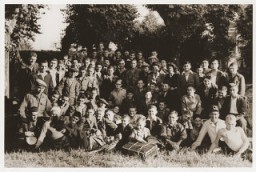
-
Auschwitz: Key Dates
ArticleExplore a timeline of key events in the history of the Auschwitz camp complex in German-occupied Poland.
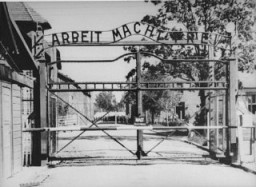
-
Fürstengrube
ArticleLearn about Fürstengrube subcamp of Auschwitz, including its establishment, administration, prisoner population, and forced labor and conditions in the camp.
-
World War I: Treaties and Reparations
ArticleAfter the devastation of WWI, the victorious western powers imposed a series of treaties upon the defeated nations. Learn about the treaties and their impact.
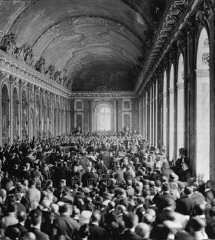
-
Theresienstadt: Key Dates
ArticleExplore key dates in the history of the Theresienstadt camp/ghetto, which served multiple purposes during its existence from 1941-45.
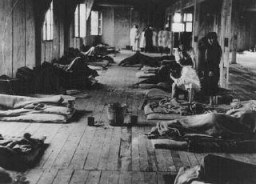
-
Tehran Children
ArticleLearn about the “Tehran Children,” a group of Polish-Jewish refugees. In 1942, they were resettled from the Soviet Union to Palestine via Iran.
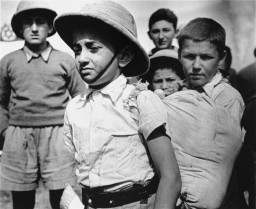
-
Hajj Amin al-Husayni: Key Dates
ArticleKey dates associated with Hajj Amin al-Husayni, former Mufti of Jerusalem who participated in a pro-Axis coup in Iraq in 1941. Explore further
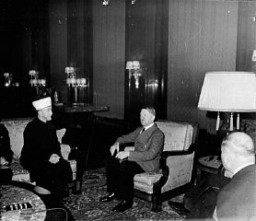
-
Adolf Hitler: 1930-1933
ArticleUnder Adolf Hitler's leadership, the Nazi regime was responsible for the mass murder of 6 million Jews and millions of other victims. Learn about Hitler in the years 1930-1933.
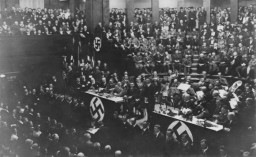
-
Julien Bryan
ArticleUS filmmaker and photographer Julien Bryan was one of the few western photographers left in Warsaw upon the German invasion of Poland in September 1939.
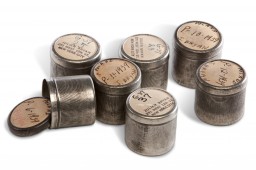
-
Anti-Jewish Legislation in Prewar Germany
ArticleNazi anti-Jewish laws began stripping Jews of rights and property from the start of Hitler’s dictatorship. Learn about antisemitic laws in prewar Germany.
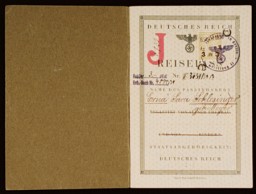
-
Blechhammer
ArticleThe Germans established the Blechhammer camp as a subcamp of Auschwitz in April 1941. Learn about the camp's history and conditions there.
-
University Student Groups in Nazi Germany
ArticleNazi student groups played a key role in aligning German universities with Nazi ideology and in solidifying Nazi power.

-
The Harrison Report
ArticleThe Harrison Report criticized conditions in the DP camps, called for changes in the treatment of Jewish DPs, and recommended allowing them to emigrate to the US and Palestine.
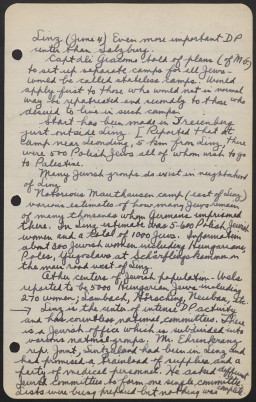
-
Children's Aid Society (Oeuvre de Secours aux Enfants)
ArticleDuring WWII, the Children’s Aid Society (OSE) operated 14 children's homes throughout France to save Jewish children from internment and deportation to killing centers.
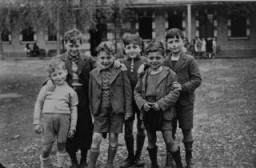
-
Warsaw Uprising
ArticleThe 1944 Warsaw uprising was the single largest military effort undertaken by resistance forces to oppose German occupation during World War II.
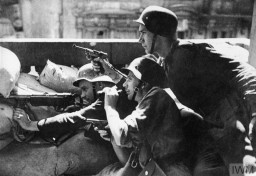
-
Nazi Party Platform
ArticleThe Nazi Party Platform was a 25-point program for the creation of a Nazi state and society. Hitler presented it at the Hofbräuhaus Beerhall in Munich in February 1920.
